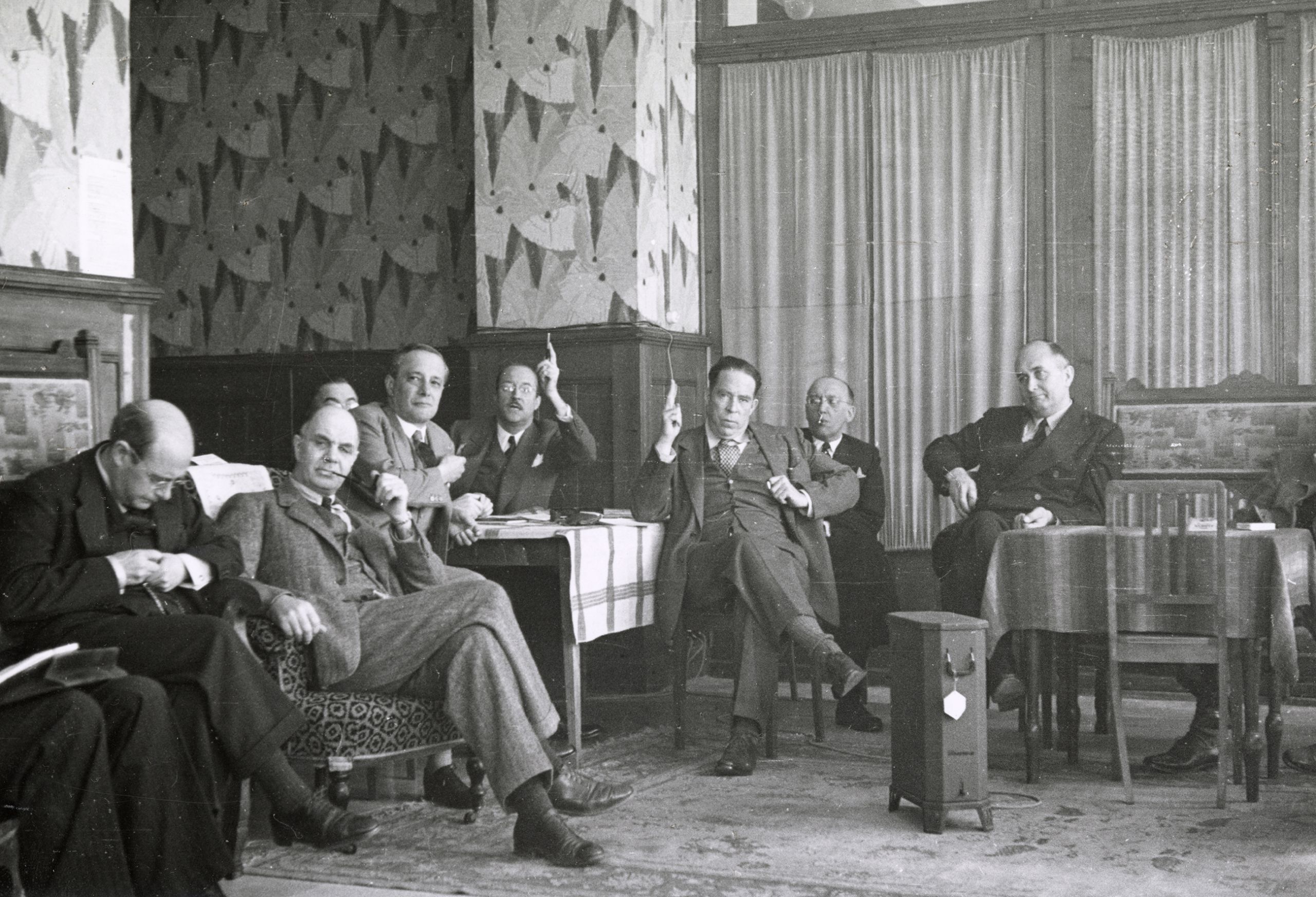
Bruce Caldwell has published the transcripts of the founding meeting of the Mont Pèlerin Society. It is an invaluable book, largely made by records of F. A. Hayek’s Secretary, Dorothy Hahn (by the way, Frank Hahn’s wife) plus some drafts of the paper presented at the first Mont Pèlerin conference. Published by the Hoover Institution with a preface by John Taylor, the book is superbly edited, and I ran into quite a few surprises. The thing I was most surprised by was Bertrand de Jouvenel, the French journalist and sociologist with “a colorful checkered past”, proposing psychologist Carl Jung and theology Karl Barth as potential members.
The discussions of those days are often surprisingly relevant to ours. The passage I was most struck by is the following, from the session on religion and Christianity, opened by Frank Knight. It came from Trygve J.B. Hoff, a Norwegian writer and economist. His Economic Calculation in the Socialist Society is published by Liberty Fund. For a nice introduction to him, see this short and informative piece by Lars Peder Nordbakken.
So Hoff commented:
It seems to me that the decline of liberalism has something to do with what we call the cultural crisis. Majority of men in the western world have lost their faith in God. And few have the ability to be agnostics. Then there is a tendency for people to become converts to secular religions, Nazism, Communism, etc.
Trevor pointed out yesterday that liberalism has no mystique. I agree. And this is a handicap in the fight against secular religions. If we are going to diagnose the causes for decline of liberalism: the need for faith, the will to believe, and the need for group feeling.
I don’t know Hoff’s work so I don’t know if he made something of this observation. But it seems to me very profound and relevant today as well. In particular, I find the words “the ability to be agnostics” amusing and particularly adept.


READER COMMENTS
Mactoul
Apr 19 2022 at 9:52pm
Wasn’t liberalism itself a consequence of erosion of religion?
For instance, Comte’s cult of humanity, the French Revolution itself were the first steps in the process that led to illiberal movements.
Roger McKinney
Apr 20 2022 at 4:06pm
Very true. Read Hayek’s Yhe Counter-revolution in Science to see how it resembled pagan religion. They built temples to Reason.
Roger McKinney
Apr 20 2022 at 4:02pm
I’ve mentioned it before, but Hayek wrote in Fatal Conceit about the necessity of religion for convincing non-economists to follow principles for which they could find no short term benefit, such as not stealing the property of others.
At the end of his life, Hayek realized that few people would take economics classes or read economics books or even an article, but they vote. Worse, most theologians had become socialists and continually promote socialism, especially Karl Barth.
Socialism rocketed to popularity in the US in the late 19th century when the mainline churches (Episcopal, Methodist, Presbyterian, Unitarian, etc.) abandoned the belief in Jesus as God and turned to Marx as the savior of the world instead of Jesus. They didn’t like Marx’s atheism, even though their deism was nothing more than sentimental atheism.
Roger McKinney
Apr 20 2022 at 4:10pm
And if some manage to read some economics, they can’t understand it because they can’t follow chains of reasoning, as Mises once wrote. Few students that are not econ majors understand the economics in an intro class. I taught many of them.
Matthias
Apr 23 2022 at 2:31am
Mathematicians and physicists shouldn’t have a problem following the relatively simple and short chains of reasoning in introductory economics classes? They are regularly doing much longer and harder ones.
Comments are closed.